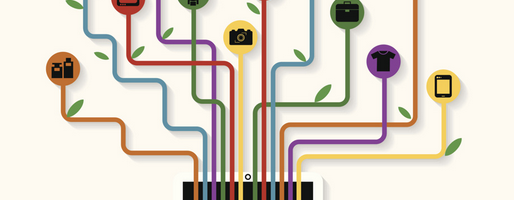The Digital Single Market: Pillar 1
The Digital Single Market: Pillar 2
Over the next few weeks we will be sharing more information and explanation about the core elements of the recently published European Digital Single Market strategy (DSM). This is in advance of Tuesday 23rd June, when we are pleased to be hosting Director General Robert Madelin and his team from the Commission for a consultative event with UK digital tech businesses. This is your chance to better understand – and influence – a significant policy agenda. Sign up for the event now.
The European Commission published its communication on a Digital Single Market Strategy for Europe on 6 May 2015. This document contains proposals for a wide range of initiatives, many of them legislative, to remove barriers to online trading in the EU.
The Digital Single Market strategy is built around three pillars:
1. Improving access for consumers and businesses to digital goods and services across Europe (e-commerce)
2. Creating the right conditions and a level playing field for digital networks and innovative services (infrastructure)
3. Maximising the potential of technological innovation (digital economy growth)
The third pillar of the DSM arises from the rapid perpetuation of digital technologies across all industry sectors; a rate of change that is set to continue apace. The Commission is seeking to create the right conditions for Europe to cultivate its competitive digital economic edge across a number of areas. Pretty expansive right? We’ve distilled it so you can see the main areas of scrutiny.
Pillar 3: Digital Economy Growth
- Digitalising industry so that all sectors should be able to integrate new technologies and manage the transition to a smart industrial system
- Huge swaths of data are created by people or generated mechanically. Big data can be a catalyst for growth, innovation and digitisation: but challenges like ownership, data protection and standards need to be addressed. The Commission will launch initiatives on the ‘free flow of data’, as well as a ‘European Cloud’
- Developing standards and interpretability to support new technologies and encouraging standards. Currently standards are defined by industry interest parties, often outside Europe, an issue that it is claimed to undermine long-term competitiveness. A European push is aimed at defining standards in areas such as IoT, cybersecurity, big data and cloud computing
- Unlocking the benefits of e-services and advancing digital skills is of primary concern to the Commission. They believe these two factors in tandem could save and create billions simultaneously
Although it’s very unlikely we’ll see implementation (if at all) of these proposals for some time, they are massively significant to the digital business community here in the UK. We suggest you take the time to educate yourself on the strategy and voice your opinions to local representatives and the powers that be at the EU level. Please also attend our event this Tuesday, June 23rd where we will be convening the key influencers and policymakers that will be shaping the DSM debate over the coming the months.




